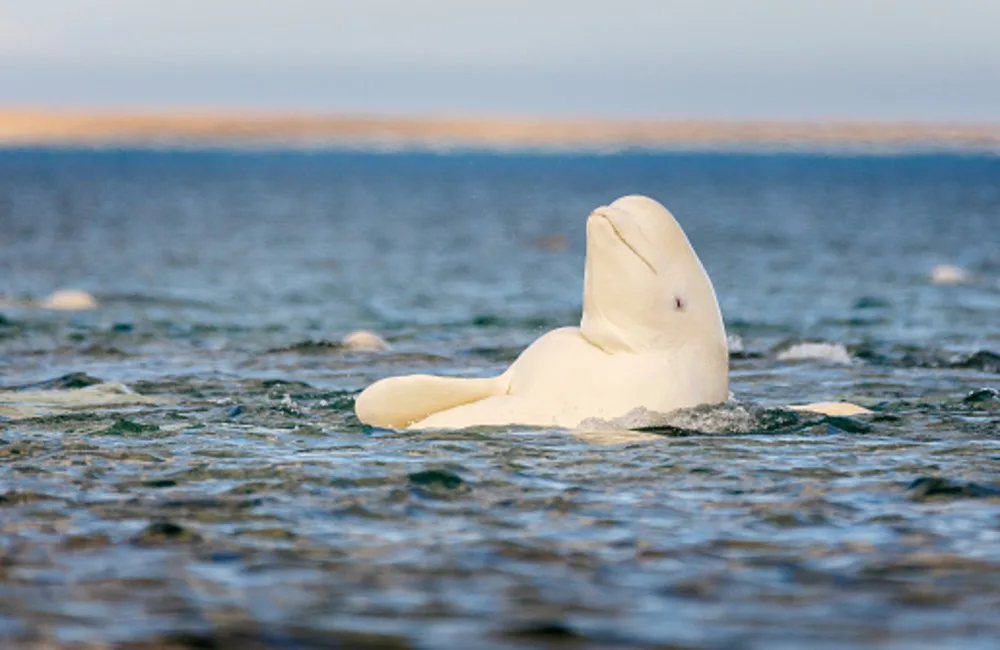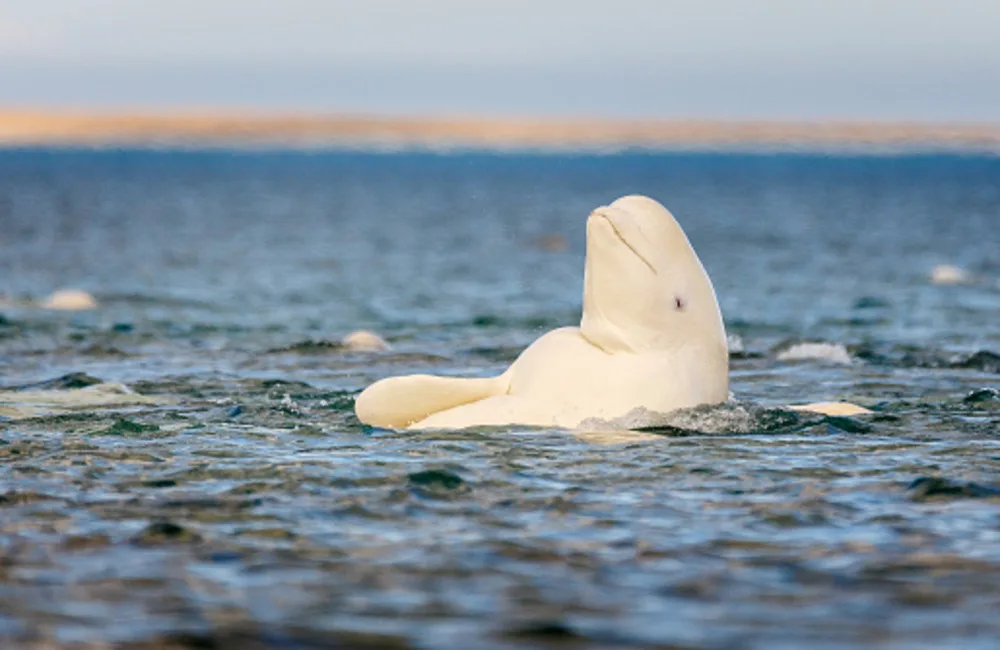
New study suggests belugas form social circles similar to the way humans do
Belugas can live for up to 70 years, suggesting some of the friendships may be long-term.
Beluga whales are social creatures and they have friends, according to a new study by researchers from Florida Atlantic University.
While other animals, like killer whales and African elephants, form social bonds around closely-related family members, belugas were found to interact with close kin as well as distantly related, and unrelated, whales.
"Belugas likely form multi-scale societies from mother-calf dyads to entire communities," reads a statement from the study's authors.
"From these perspectives, beluga communities have similarities to human societies where social networks, support structures, cooperation, and cultures involve interactions between kin and non-kin."
Belugas have a typical lifespan of about 70 years, suggesting some may form long-term friendships.
Greg O'Corry-Crowe, Ph.D., lead author and a research professor at FAU's Harbor Branch, suspects highly-developed vocal communication is what enables the diverse friendships.

File photo: Getty Images.
"Beluga whales exhibit a wide range of grouping patterns from small groups of two to 10 individuals to large herds of 2,000 or more, from apparently single-sex and age-class pods to mixed-age and sex groupings, and from brief associations to multi-year affiliations," said O'Corry-Crowe.
"This variation suggests a fission-fusion society where group composition and size are context-specific, but it may also reflect a more rigid multi-level society comprised of stable social units that regularly coalesce and separate. The role kinship plays in these groupings has been largely unknown."
VIDEO: FRIENDLY BELUGA STOPS TO SAY HELLO
The study was conducted at 10 locations, in different habitats, including subarctic Alaska, Russia's Gulf of Anadyr, and Kasegaluk Lagoon, Kotzebue Sound, and Norton Sound), in Canada.
Researchers hope the study will provide insight into why belugas form social groups, which could help devise better strategies to protect the species against emerging threats like climate change.






